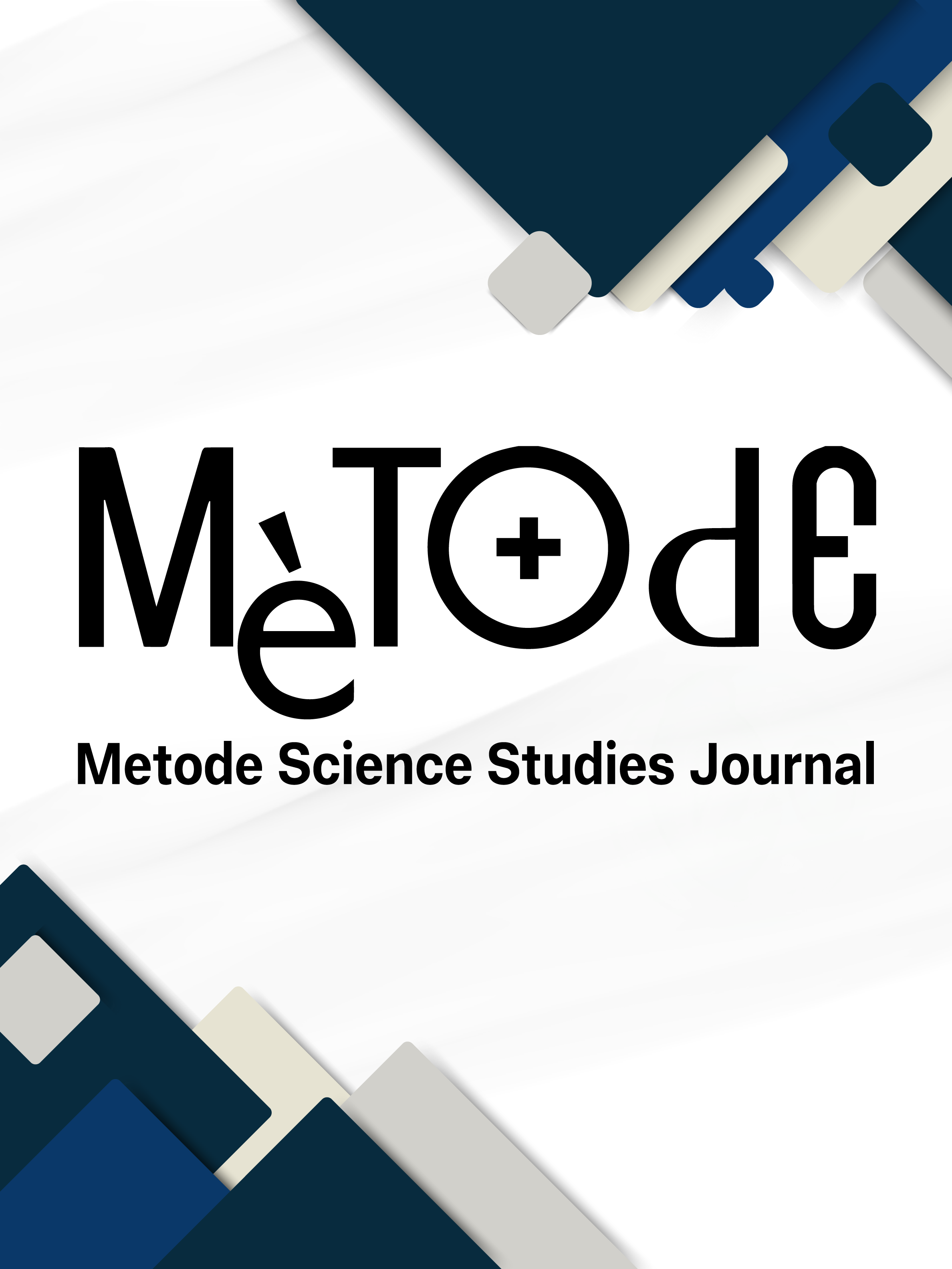A passion for chemistry
Historical and current references in recreational chemistry and implications for teaching and outreach
DOI:
https://doi.org/10.7203/metode.15.27481Keywords:
science education, science popularisation, recreational chemistry, chemistry and everyday life Abstract
Abstract
After introducing some general ideas about recreational chemistry, here I provide some historical references from the 18th century to the present day. These include philosophical evenings, the creation of institutions for popularising science, and the publication of emblematic books and journals on the subject. I discuss the activities of some prominent personalities in recreational chemistry and analyse the specificities of different aspects of this domain such as varying approaches (games and gamification, science fairs, media, the internet, and software, etc.). These are compared to other fields of science popularisation (prevention and safety, specific recommendations for its use, etc.) and implications for science teaching and popularisation in relation to this field of knowledge. Finally, with the conclusions, I have also provided bibliographical references to facilitate further study of the subject.
 Downloads
Downloads
 References
References
Armstrong, E. V. (1938). Jane Marcet and her “Conversations on Chemistry”. Journal of Chemical Education, 15(2), 53–57. https://doi.org/10.1021/ed015p53
Berman, M. (1972). The early years of the Royal Institution 1799-1810: A re-evaluation. Science Studies, 2(3), 205–240.
Cesa, I. G., Finester, D. C., Sigmann, S. B., & Wilhelm, M. R. (1998). Revising the división of chemical education safety guidelines for chemical demonstrations. Journal of Chemical Education, 95(4), 502–503. https://doi.org/10.1021/acs.jchemed.7b00802
Childs, P. (2014). Using demonstrations to stimulate inquiry and students’ thinking. Educació Química, 19, 48–57. https://doi.org/10.2436/20.2003.02.144
Crellin, J. K. (1979). Mrs. Marcet's 'Conversations on Chemistry. Journal of Chemical Education, 56(7), 459–460. https://doi.org/10.1021/ed056p459
De Azcárraga, J. A. (2021). La nueva legislación educativa: por qué no mejora la educación pública en España. Revista Española de Pedagogía, 80(281), 111–129. https://doi.org/10.22550/REP80-1-2022-08
García Belmar, A. (2020, 23 de diciembre). La ciencia en la esfera pública. Sabers en acció. https://sabersenaccio.iec.cat/es/la-ciencia-en-la-esfera-publica-es/
García-Molina, R. (2011). Ciencia recreativa: un recurso didáctico para enseñar deleitando. Revista Eureka sobre Enseñanza y Divulgación de las Ciencias, 8 (Número extraordinario), 370–392.
Hache-Bissette, F. (2017). Le partage des savoirs: Science populaire ou vulgarisations scientifique. En Les Sciences en Bibliothéque, M. Netze (Ed.), pp. 51–62. Éditions du Cercle de la Librairie.
Haran, B., & Poliakoff, M. (2011). The periodic table of videos. Science, 332(6033), 1046–1047. https://doi.org/10.1126/science.1196980
Kale, S. (2004). French salons, high society and political sociability from the old regime to the revolution of 1848. The Johnson Hopkins University Press.
Moreno Martínez, L. (2022). El valor educativo de la historia de la química para las aulas de secundaria. Anales de Química, 118(3), 163–171.
Parkers, S. (1819). The chemical catechism, with notes, illustrations and experiments. R. and A. Taylor.
Pinto, G. (2003). Divulgación de la química. Anales de Química, 99(4), 63–66.
Pinto, G., Castro Acuña, C. M., & Martínez Urreaga, J. (2006). Química al alcance de todos. Pearson Educación.
Puerto Sarmiento, F. J. (1994). La huella de Proust: El laboratorio de química del Museo de Historia Natural. Asclepio, 46(1), 197–220. https://doi.org/10.3989/asclepio.1994.v46.1.480
Richard. (1856). Le magicien des salons ou le diable couleur de rose. Recueil nouveau de physique amusante, de chimie récréative, de tours de cartes, magie blanche, etc., etc. Delarue.
Solbes Matarredona, J., Lozano Gutiérrez, Ó., & García Molina, R. (2008). Juegos, juguetes y pequeñas experiencias tecnocientíficos en la enseñanza aprendizaje de la física y química y la tecnología. Investigación en la Escuela, 65, 71–88. https://doi.org/10.12795/IE.2008.i65.07
Tajuelo, L., & Pinto, G. (2021). Un ejemplo de actividad de escape room sobre física y química en educación secundaria. Revista Eureka sobre Enseñanza y Divulgación de las Ciencias, 18(2), 2205. https://doi.org/10.25267/Rev_Eureka_ensen_divulg_cienc.2021.v18.i2.2205
Tissandier G. (1884). Recreaciones científicas ó la física y la química sin aparatos ni laboratorio y solo por los juegos de la infancia con una exposición detallada de los principales aparatos que pueden constituir la casa o museo de un aficionado a las ciencias, seguida de algunas aplicaciones científicas a los usos de la vida doméstica, etc. (Traducción de E. Sánchez Pardo). Carlos Bailly-Bailliere. (Trabajo original publicado en 1881).
Vélez de Paredes, E. (1860). Manual de química divertida, ó sea recreaciones químicas. Librería de Rosa y Bouret.
Downloads
Published
How to Cite
-
Abstract626
-
PDF125
Issue
Section
License
Copyright (c) 2024 CC BY-NC-ND 4.0

This work is licensed under a Creative Commons Attribution-NonCommercial-NoDerivatives 4.0 International License.
![]()
All the documents in the OJS platform are open access and property of their respective authors.
Authors publishing in the journal agree to the following terms:
- Authors keep the rights and guarantee Metode Science Studies Journal the right to be the first publication of the document, licensed under a Creative Commons Attribution-NonCommercial-NoDerivatives 4.0 International License that allows others to share the work with an acknowledgement of authorship and publication in the journal.
- Authors are allowed and encouraged to spread their work through electronic means using personal or institutional websites (institutional open archives, personal websites or professional and academic networks profiles) once the text has been published.





